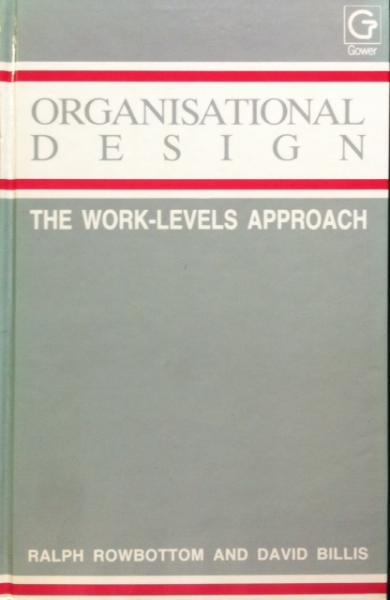Organisational Design
The Work Levels Approach FREE DOWNLOAD

Obtain this book
To download a digital copy of this book for free
You need to register for a free GO Society web site account if you don't already have one at https://globalro.org/user/register. Then log into your account at https://globalro.org/user/login. Next, return to this page and you will be able to see and download the file.
ORGANISATIONAL DESIGN:The Work-Levels Approach by Ralph Rowbottom and David Billis approach to organisational design that has grown from helping people in a wide variety of settings to grapple with basic problems of just these kinds. In carrying out such work it often becomes apparent in fact that one of the first things wrong is classic: people simply do not know how much authority and responsibility they have. Foremen wonder whether or not they are genuine 'first line managers'. More-senior production staff complain of undue interference from specialists and headquarters people. Ward sisters are left unsure of the extent of their control over night-nursing. Social work team leaders are not clear how far they are responsible for the work of other team members.
Regional officers in banking or insurance find that local managers regularly bypass them in dealings headquarters. The exact powers of designated deputies and assistants are often a matter of considerable doubt and controversy.
Taken together, these three sets of ideas on
(a) different types of authority relationships,
(b) different levels of work and
(c)different levels of individual ability
Provide an approach to organisational design of considerable power and scope.Overall an approach to organisational design which, though it makes no claim to be all-encompassing, is nevertheless substantial both in its range of application and its depth of penetration.
Above all it is an approach grounded on practical problems. It is built on decades of discussions with managers and practitioners from a wide variety of organisations on real and pressing problems as they actually manifest themselves. And it is dedicated to helping to bring such problems to practical resolution.






